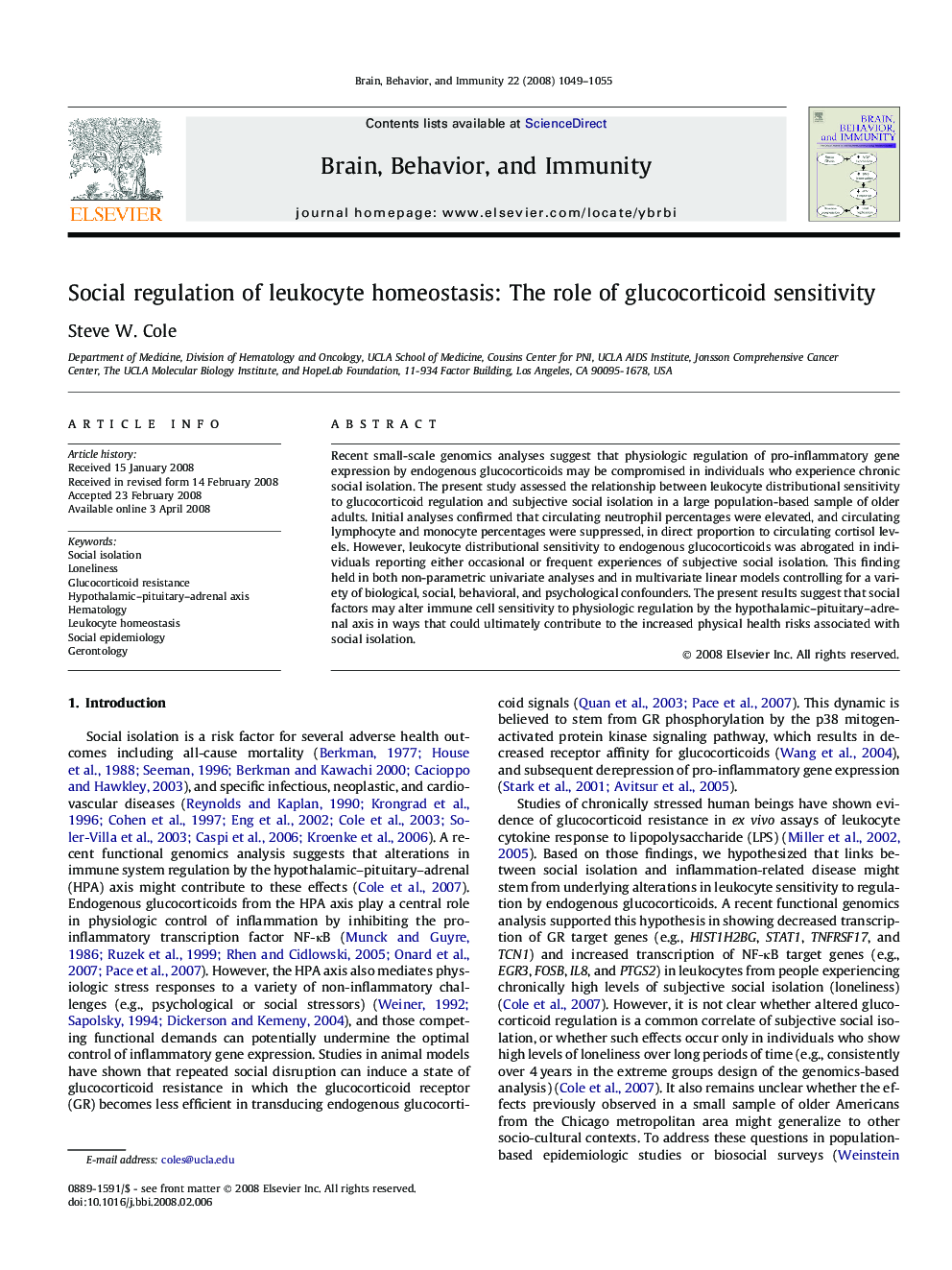| Article ID | Journal | Published Year | Pages | File Type |
|---|---|---|---|---|
| 923249 | Brain, Behavior, and Immunity | 2008 | 7 Pages |
Recent small-scale genomics analyses suggest that physiologic regulation of pro-inflammatory gene expression by endogenous glucocorticoids may be compromised in individuals who experience chronic social isolation. The present study assessed the relationship between leukocyte distributional sensitivity to glucocorticoid regulation and subjective social isolation in a large population-based sample of older adults. Initial analyses confirmed that circulating neutrophil percentages were elevated, and circulating lymphocyte and monocyte percentages were suppressed, in direct proportion to circulating cortisol levels. However, leukocyte distributional sensitivity to endogenous glucocorticoids was abrogated in individuals reporting either occasional or frequent experiences of subjective social isolation. This finding held in both non-parametric univariate analyses and in multivariate linear models controlling for a variety of biological, social, behavioral, and psychological confounders. The present results suggest that social factors may alter immune cell sensitivity to physiologic regulation by the hypothalamic–pituitary–adrenal axis in ways that could ultimately contribute to the increased physical health risks associated with social isolation.
